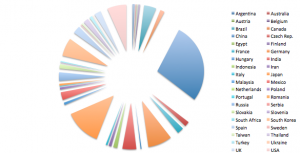Environmental Justice
Environmental Justice describes the disproportionate allocation of environmental harms and benefits. Research shows that low-income communities face the greatest risks from environmental hazards resulting from internal combustion engine vehicles because they are more likely to be located near heavily traveled highways. This puts people living in these communities at a higher risk for asthma, cardiovascular and respiratory disease, cancer, and birth defects. These communities tend to have less of a voice in collective decision making and also tend not to have access to adequate health care or healthful foods with furthers the issue.
Relating Climate Change
Environmental Justice has a strong relationship with climate change for ICE emissions contributing to climate change disproportionately affects the different communities throughout the United States. Low-income Communities and communities with dense minority percentages bare most of the burdens resulting from climate change. These communities lack the money and resources available to richer communities that create a safe environment and resist the shifts in weather and temperature. Poor communities also lack a political voice in environmental policies/regulations, which further hurts the potential for making a change. Many of these poor communities are also producing less GHG emissions than richer communities; however, the poor communities still bare most of the environmental harm.
A Global Issue
Environmental Justice relating to internal combustion engines is also a global issue. Emissions travel around the world and as a result, countries that use less vehicles as a mode of transportation due to cultural differences or due to a lack of technological and economic development are bearing a majority of the associated negative impacts.
Comparing Global Distribution of Car Sales in 2013
| Top 5 Countries | Bottom 5 Countries | ||
| Country | Car Sales in 2013 | Country | Car Sales in 2013 |
| China | 18,085,213 | Ukraine | 45,758 |
| Japan | 8,189,323 | Egypt | 25,650 |
| Germany | 5,439,904 | Serbia | 10,100 |
| USA | 4,346,958 | Finland | 3,330 |
| South Korea | 4,122,604 | Netherlands | 0 |
Global Distribution of Car Sales by Country in 2013
Regulations Relating to the Issue of Environmental Justice:
1992: Established Executive Order 12898 requiring all federal agencies, including the U.S. DOT to carefully evaluate how there activities affect low income and minority communities
1992: Established the Inter-modal Surface Transportation Efficiency Act which strengthened requirements for community involvement in regional transportation planning and the federal commitment to funding public transportation
1998: Established the Transportation Equity Act for the 21st century which more formally recognized equity as a priority for U.S. transport policy
